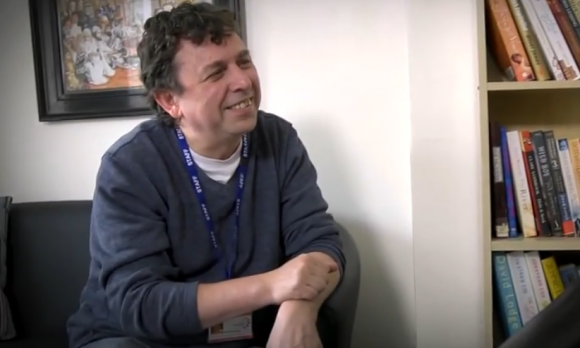My Time
A unique mental health social enterprise employing former service users is covering new ground, finds Andrew Burns. //
Five years ago Tony Mills was at death’s door. Having just lost his job on a building site in Birmingham and with nothing – and no one – to lean on, he developed depression and felt like he had nothing to live for.
“In 2008 I was in a bad place,” he says. “Just looking at me would have made you turn around and walk the other way. I was fired from my job and was stuck in my flat all day. I was a recluse. I became really depressed and attempted suicide.”
Tony eventually reached out and, since being referred to Birmingham-based counselling practice My Time by his local GP, he has never looked back. “I didn’t have anything in my life at that time but this gave me something to look forward to, gave me a reason to leave the house,” he explains. “And it wasn’t just the support – My Time opened my eyes to what’s out there and what other people go through.”
Five years after nervously walking through the doors at My Time, Tony, 34, from Aston, now spends his time between volunteering on the social enterprise’s reception and studying maths, English and IT at South and City College Birmingham.
“I didn’t have a friend before I went to My Time,” he says. “It’s made me live again. I’ve just completed my first year doing maths and English at college and I am going back to do an IT course in my second year. I wouldn’t have dreamt of doing this kind of thing a few years ago.”
This ethos of catering to individual needs – regardless of how unique or challenging they are – and involving clients in the running of My Time is what the organisation’s success has been built upon. For example, the social enterprise is 49 per cent owned by former clients, with two clients elected to the My Time board every year.
It strives to integrate former clients, ranging from Tony’s volunteer role to the managing director – a role held by Bosnian refugee Amra Dautovic, who arrived in Birmingham in 1994 after her family fled Bosnia at the height of the country’s civil war.
Founded in 2002 by CEO Michael Lilley, My Time now supports around 1,600 clients every year. It employs 38 members of staff in Small Heath, Birmingham, and has a turnover close to £1m.
Big Issue Invest got involved eight years after Lilley started the company to help My Time step up to the next level. Since then, plans to open 10 more franchises across the UK are in full flow after the successful piloting of localised outlets in Worcestershire, Derbyshire, London, Gloucestershire and Chelmsford.
“What I really love about My Time is that, just like The Big Issue, it is all about people who are perceived to be the problem but are in fact the solution – whether they be homeless and vulnerably housed or in need of mental health support,” says Nigel Kershaw, CEO of BII and chair of The Big Issue.
Lilley – who himself once faced losing his children after falling into homelessness in the 1980s – says: “Similar to what many clients are going through when they come to us, I collapsed with the stress of trying to keep my young family together after my partner became very ill.
“Fortunately I found help through the church but it was this experience that pushed me forward. Eventually, when I found funding to start My Time, I knew the best type of people to help those in need are those who have been through the problems themselves.
“I was once told a story about diners who were unhappy at the quality of a restaurant but were told, ‘Too bad – you can’t run the kitchen’. Well, over 70 per cent of mental health patients are unhappy with the service they receive. We are the diners that have been looking after the restaurant for 11 years.”















Write Your Comment